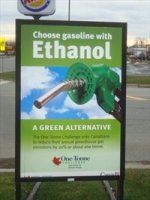e10/e15/e85, EW
HI there,
Lets look at this from a technician point of view.
Aside from the mutual understanding that ethanol in any form reduces fuel mileage and increases the corrosive nature of the fuel inside your fuel supply system, there are other factors that need to be addressed.
Ethanol mixing is far from accurate. Using an accurate fuel composition tester here in Ct, I have tested fuels that are supposed E10 and see concentrations as low as 6% and as HIGH as 27%. The higher the % of alcohol, the greater the driveability concerns and problems with power if your vehicle is NOT FLEX FUEL EQUIPPED.
E85 flex fuel vehicles can compensate and run the E85 due to a number of reasons. Redesigned fuel pipes, pumps, injectors are only PART of the story. Completely redesigned programming of the engine control module to DETERMINE ethanol content is also part of it. And now, with the inaccuracies of that system, they are now coming back with composition sensors as part of the fuel systems because of what they are dealing with.
And if you EVER try to put ethanol in pre 1997 Corvette, it can actually short out fuel injectors due to the corrosive nature of the fuel flowing past injector electrical windings. This is for Crossfire, L98, and Multec 1 design injectors.
Nevermind the fact that with the necessary fuel filters that absorb water, and the fact that ethanol encapsulates water, this just creates MORE issues.
Is there a clear cut solution, I dont think so. However, the advent of direct fuel injection in the LT1 is a start for Corvette to be able to use E15 and more. But as far as GM vehicles, they state VERY CLEARLY.
However, ethanol blends greater than E 10 should not be used in GM vehicles that do not have a flex fuel designation as they are not designed and certified to run on gasoline consisting of more than 10 percent ethanol-blend volume to avoid any unintended consequences, as per their Owner Manual.
Allthebest, Paul
 otfl
otfl




